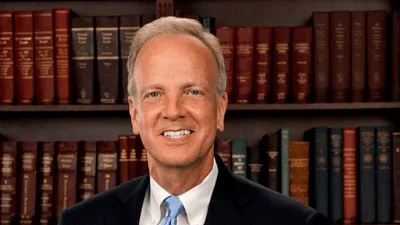The Congressional Record is a unique source of public documentation. It started in 1873, documenting nearly all the major and minor policies being discussed and debated.
“NOMINATION OF AVRIL DANICA HAINES” mentioning Jerry Moran was published in the Senate section on pages S69-S70 on Jan. 20.
Of the 100 senators in 117th Congress, 24 percent were women, and 76 percent were men, according to the Biographical Directory of the United States Congress.
Senators' salaries are historically higher than the median US income.
The publication is reproduced in full below:
NOMINATION OF AVRIL DANICA HAINES
Mr. WYDEN. Mr. President, I rise to discuss the nomination of Avril Danica Haines to be Director of National Intelligence. I think my colleagues know that in a few minutes, the Senate will be voting on her nomination for this key position.
I briefly intend to outline where I think things stand on several sensitive issues with the 18 agencies that make up the intelligence community.
The Biden administration and Ms. Haines have an opportunity and a duty to turn the page on the coverups and lawlessness of the outgoing administration. That is why I asked Ms. Haines at her confirmation hearing whether she would abide by a law that I authored requiring an unclassified report on who was responsible for the killing of Washington Post journalist Jamal Khashoggi.
Jamal Khashoggi was a U.S. resident who was lured to the Saudi consulate in Istanbul and brutally murdered. Despite press stories that the Saudi Arabian leader was responsible for the killing, the Trump administration stayed mum, just stonewalled. For a whole year, the Trump administration just ignored the law that I wrote. So I asked Ms. Haines at our hearing whether she would follow the law and provide that unclassified report on who was responsible for Jamal Khashoggi's murder. Ms. Haines' response was straightforward. She said she would provide the report and comply with the law.
That statement, frankly, as modest as it was, was a sea change, colleagues, from the obstructionism and stonewalling of the Trump administration. The Trump administration had basically taken the position on laws like this transparency measure that it was kind of optional for the executive branch to comply.
So Ms. Haines' direct commitment to making that key report on the role the Saudi leaders in the murder of Jamal Khashoggi, in my view, was a real step forward for the rule of law, for accountability, and for human rights. And I will say as a journalist's kid that it was a real step forward for the freedom of the press everywhere.
The second subject I discussed with Ms. Haines was a particularly troubling aspect of the CIA's recent history. The CIA spied on the staff of the Senate Intelligence Committee when the staff was writing the torture report. As Deputy Director, Ms. Haines didn't hold anyone accountable. In my view, this abuse, this spying on the Senate Select Committee on Intelligence, basically, colleagues, turns the whole concept of oversight on its head. The U.S. Congress is supposed to do oversight on the executive branch and not visa-versa.
In response to my questions at the hearing, Ms. Haines admitted that the spying on the committee was wrong. She also agreed that she supported recommendations to expand accountability and would apply that expanded accountability to the intelligence community at large. And when she was asked about the CIA's baseless efforts to have committee staff prosecuted, she agreed that there ought to be guardrails against that happening again.
The third area I explored with the nominee was the need to rebuild trust in the intelligence community, which, in my view, requires a new focus on transparency and openness. For example, there ought to be transparency so that the American people know what kind of surveillance is being conducted on them. The President of the Senate knows about the important vote we had on that amendment that I offered, the bipartisan amendment with Senator Daines, because we ought to get transparency on whether the government is spying on the browsing history of the American people.
So this is really a critical and growing concern because we are all seeing data brokers and others selling people's data, and it is especially important that the American people are told if the government is using a legal loophole in the law in the warrant requirement of the Fourth Amendment So I asked Ms. Haines about circumstances in which the government, instead of getting an order, just goes out and purchases the private records of Americans from these sleazy and unregulated commercial data brokers who are simply above the law--literally above the law. I believe this practice is unacceptable, and soon I will be introducing legislation to make it clear that the Fourth Amendment is not for sale.
Now, for Congress to tackle the topic, it is vitally important that there be an informed public debate about what the government is collecting right now and what it believes is a legal basis for the collection. And I was encouraged by how Ms. Haines responded to that question I asked. She said it was critical that the American people have an understanding of when and under what authorities the government is buying their private data.
Now, Ms. Haines made a number of other commitments related to transparency issues, many of which relate to a problem that I have come to describe as ``secret law.''
To my colleagues--I see our new Members here--people think when a law is written, they go to a coffee shop in Atlanta or Athens or Tucson, and they read about a law, and they think that is what the public law says. But secret law is based on the proposition that after the public law is put in place, the government often reinterprets the public law in secret and keeps the new interpretation secret under the pretext that this secrecy is just so key to keeping Americans safe.
The reality is that the interpretation of public law ought to be transparent and public as well, and it comes down to a very straightforward principle. I am a strong opponent of secret law. I am a strong supporter of transparency. And I intend to remind Director Haines what she told me just a few days ago about transparency and to push hard for the public release of as much information as possible when Americans deserve to see it, and they can see it when it is consistent with the safety and well-being of their households and their loved ones.
I also intend to push the Director of National Intelligence to fix a broken declassification system. For years, a flood of new, digitally classified information has overwhelmed the obsolete, paper-based declassification system. This system is so out of whack that in order to get a document declassified, government officials actually have to walk the document around Washington from agency to agency. I actually said at our open hearing that I wonder if it is getting to the point that to get a document declassified, someone who works for the government has to pack a lunch, put the document in a big black briefcase, and then make their way all over the Nation's Capital.
So I have introduced with Senator Moran bipartisan legislation to authorize the Director of National Intelligence to fix the problem. Ms. Haines has acknowledged the seriousness of the problem and the DNI's role in fixing it. It is my intent to make sure that this also is not allowed to just continue as business as usual.
Some of the starkest differences between the actions of the outgoing administration and the positions taken by Ms. Haines here a couple days ago relate to the crucial area of whistleblowers.
The outgoing administration broke the law when it withheld from Congress the complaint of the Ukraine whistleblower, the whistleblower who identified abuses that resulted in the first impeachment of Donald Trump. This lawlessness undermined both the whistleblower system and the independence of the Intelligence Community Inspector General, who had determined that the complaint ought to be submitted to Congress. Ms. Haines has been clear--the law requires that when the inspector general determines that a whistleblower complaint is urgent, the Director of National Intelligence cannot keep it from the Congress.
She made other commitments to whistleblowers. There are whistleblower protection laws--including some that have been approved by the Senate Intelligence Committee--that need to be enacted. There are procedures already required by law that the outgoing administration just didn't issue. They just stonewalled.
After all the damage done by the Trump administration with respect to trampling on the public's right to know and transparency where the information can be made public to the American people without compromising sources and methods, I will state that the Biden administration has a lot of work to do to repair and improve whistleblower protections. They are going to have a lot on their plate. The country has massive cyber vulnerabilities that we saw just a couple of weeks ago. There is more to do in terms of preventing foreign interference in our elections. We have to ensure that other surveillance programs provide security without sacrificing our constitutional rights.
I am going to close by way of saying I don't assume that I will always agree with the incoming administration. That has been true for me with Democrats and Republicans on these issues. When we disagree, we will have a vigorous debate--as vigorous as when I disagreed with the Trump administration.
Ms. Haines as DNI and Ambassador Burns as CIA Director are beginning to shape up as a team that will be more open with the public, respect the law, and work with the Congress to repair the vast damage of the outgoing administration and respect what Ben Franklin talked about so many years ago. Liberty and security are not mutually exclusive. Smart policies get you both. Not-so-smart policies get you less of both. And that is our challenge.
So tonight, because of her answers to me at the open Intelligence hearing a couple of days ago, I want to say I am going to be supporting Ms. Haines' nomination to be Director of National Intelligence.
The PRESIDING OFFICER. The Senator from Virginia
____________________



 Alerts Sign-up
Alerts Sign-up